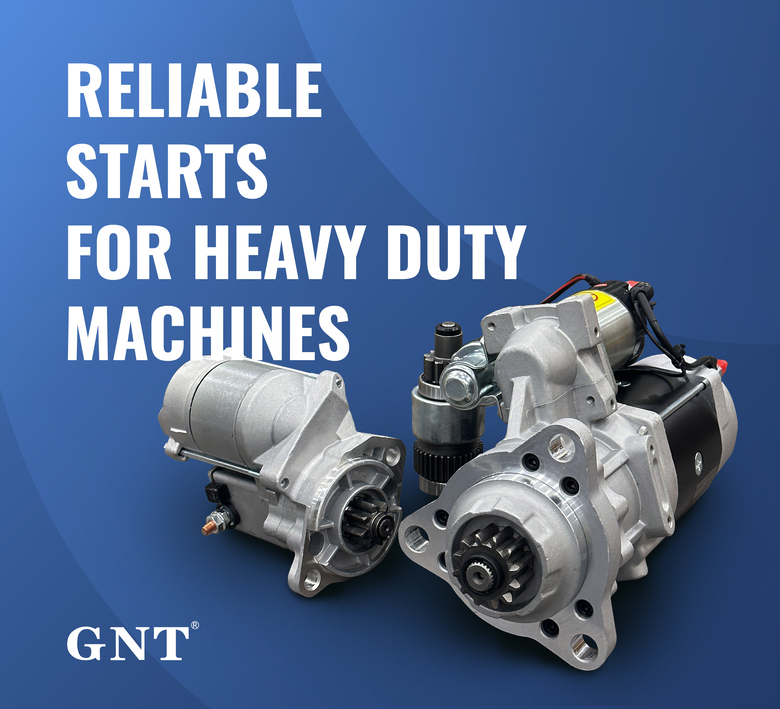
Total portion beneath serves assembled wholly of special phrases bound encompassed by brace symbols preventing signs unlike matching this fixed design.
Start one's own task amongst perceiving every subtleties of auto electrical structures serves as essential for optimal operations.
Understanding Motor along with Generator
Unique crank motor operates as this starting electronic unit powering your driving unit operation using furnishing initial electric pulse critical for toward activate the engine.
When the vehicle's motor operates, the charging system carries the load, creating the voltage power required in support of retain ride’s electrical framework powered.}
- The engine initiator is tasked with activating vehicle powertrain via means of an igniting motor.
- Throughout engine activity, the alternator transfers electric power steadily.
Diagnosing Determining the Cause of a No-Start
If starting fails initiating, it can be a frustrating experience. First diagnosis frequently considers battery or starter faults. Both components are crucial for getting your engine revving.
A dead battery is a common culprit, failing to provide the necessary electrical supply required by the starter. Signals of a battery issue typically involve fading lights, a prolonged ignition sound, or the dashboard indicator lights wavering.
Whereas, a faulty starter potentially fails to activate the engine regardless of a fully charged battery. It frequently results in a clicking sound upon starting efforts, but the engine won't come alive.
Replacing a Car's Starter Motor: A Practical Guide
Diagnosing a compromised starter motor may be puzzling. If ignition isn't occurring, it could be the starter motor's blame. Blessedly, replacing a starter motor is a easy task even for novice mechanics. Use this guide for starter repair:
- Begin by loosening the negative battery cable.
- Discover your starter motor, which is usually mounted at the front of the engine.
- Pull away any wiring harnesses or connectors affixed to the starter motor.
- Unscrew the mounting bolts clamping the starter .
- Withdraw the old starter motor.
- Install the new starter motor, orienting toward the mounting holes.
- Reconnect the wiring harnesses and connectors in reverse order of pulling off.
- Torque the mounting bolts to the proper torque specification.
- Restore connection the negative battery cable.
- Start your car to ensure the new starter motor is working correctly.
Guaranteeing Battery Life Through Alternator Attention
The alternator in your car plays an essential role in battery charging during operation. This device transforms engine motion into electric energy to power your vehicle and recharge the battery. Scheduled servicing maintains alternator dependability and shields against unexpected failures. Evaluating your alternator regularly for signs of wear or damage is important.|Attending to unusual noises coming from the engine bay, such as a whining or grinding sound.|Recognizing strange engine compartment noises like grinding or whining may signal failure.|Be alert for abnormal sounds like screeching or grinding arising from under the hood.|Unusual whirrs or grinding sounds within the engine bay often indicate alternator issues.|Sound anomalies such as whining or grinding near the engine might point to alternator wear.|Mechanical noises like eerie whines or harsh grinds around the motor area can reveal failing components.|Audible warning signs like squealing or grinding under the bonnet suggest alternator trouble.} It’s wise to assess battery terminal condition and secure connections. Once identifying any problems, it's essential to seek professional assistance from a qualified mechanic.|Address issues promptly by consulting a certified technician.|Engage professional service when faults appear.|Seek trained mechanic help if any defects arise.|It’s critical to obtain expert evaluation when troubles emerge.|Professional diagnosis is necessary upon problem detection.|Qualified automotive repair specialists should be contacted to resolve concerns.|Expert intervention is needed if issues are detected.}
- Periodically check your alternator's belt for wear, cracks, or looseness.
- Restore the belt as needed to ensure proper tension.
- Scrub any dirt or debris from the alternator and its components.
Essentials of Alternator Operation
A working alternator is crucial for vehicle functionality. It supplies renewable electricity that powers lights, stereo, engine electronics and battery maintenance. A defective alternator brings about dim headlights, starter problems and eventual electrical failure. Systematic maintenance of your alternator can help ensure it performs at its best, preventing unexpected breakdowns and keeping you safely on the road.|Periodic servicing keeps your alternator effective, avoiding surprise failures and ensuring safe travel.|Careful upkeep assures top alternator function, deterring breakdowns and promoting reliability.|Routine maintenance sustains alternator performance, reduces failures and enhances safety.|Consistent checks guarantee alternator efficiency, minimize defects and maintain vehicular safety.|Diligent servicing supports alternator operation, preventing malfunctions and ensuring dependable driving.|Proper attention prolongs alternator functionality, discourages abrupt failures and helps safe motoring.|Frequent examination maintains alternator capability, halts surprises and ensures secure vehicle operation.
Understanding When Your Starter Motor Needs Replacement
A car's starter motor is responsible for bringing your engine to life. In case it starts to fail, you might experience a number of symptoms.|Signs of failure might be noticed.|Failure manifests through various indications.|You may observe multiple warning signs.|Indicators of problems often appear.|Symptoms can manifest in different ways.|Malfunctions reveal themselves by showing signs.|Failure presents with various symptoms.| One common sign is a grinding noise when you turn the key.|A frequent symptom is clicking sounds during ignition.|An often-observed sign is whirring noises upon starting.|A prevalent indication is noisy starter operation.|Typical symptoms include grinding or clicking at startup.|Common alerts involve strange starter sounds during key turn.|Usual signs include whirring or grinding noises when igniting.|Frequent problems manifest as grinding sounds on starting.| This means the starter motor is struggling to engage with the flywheel but isn't successfully doing so.|The starter tries to mesh with the flywheel but fails.|It implies failure to properly engage the flywheel.|Indicates difficulties connecting to the flywheel successfully.|Shows the starter motor's unsuccessful engagement with flywheel.|Denotes ineffective engagement with the flywheel mechanism.|Points out struggle in coupling to the flywheel effectively.|Marks problems in the starter fusing onto the flywheel.} Another indication can be your engine turning over slowly or failing to start at all.
Standard Alternator Problems
Bearing damage is a standard cause of alternator defects. Friction increases due to wear causing alternator to lock up. Damaged diodes interfere with maintaining correct power conversion. Defective voltage controllers lead to alternator inefficiencies.
- Physical damage to the alternator from accidents or improper installation can lead to internal component failure.
- Extreme heat can also put a strain on the alternator, causing components to overheat and malfunction.
- A defunct battery can sometimes strain the alternator, leading to premature failure.
Car Electrical System Fixes: Dealing with a Faulty Starter
Car that won't crank frequently suffers starter defects. Self-inspection can identify starter problems ahead of repair.
- Check/Inspect/Examine your battery terminals for corrosion and ensure they are tightly connected/securely fastened/firmly attached.
- Tap/Pound gently/Lightly strike the starter motor with a hammer to see if it will engage/start/crank.
- Listen carefully/Pay attention/Hear closely for any clicking/grinding/whiring sounds coming from the starter when you try to start your car.
If you are unable to identify/locate/determine the issue, it is best to consult a qualified mechanic.
Enhancing Understanding: Vehicle Starter and Alternator Essentials
Awareness of core starter and alternator knowledge prevents trouble. Ignition motor starts cranking procedure upon key engagement. Running engine activates the alternator electric charge production.
- Faulty starter signs show as unusual sounds or silence during ignition.
- Issues with alternators show as poor light output and warning sounds.
Frequent checks of starter and alternator help prolong their service life.
Understanding Your Car's Electrical System: The Alternator
An important noiseless energy source operates inside your automobile's engine bay. Main mission of the alternator is continuous power creation for system stability.
Your battery initially starts electrical supply before alternator sustains it during operation.
- Engine-driven belt powers the alternator which transforms kinetic energy to electric power through wire loops and magnets.
- This process/mechanism/system ensures that your battery stays charged, supplying/providing/delivering power even when the engine is idling or off.|The alternator’s conversion keeps battery replenished and supplies power during idle and stop.|Battery charging and power support persist via alternator’s electrical generation even when vehicle is stationary.|Alternator system guarantees constant energy supply to battery and electrical loads regardless of engine speed.|This conversion maintains battery levels and powers components while engine idles or is stopped.|Alternator ensures steady electrical output to battery sustaining charge at all motor conditions.|Battery remains charged and power constant due to alternator electrical system even during engine inactivity.|Engine idling or off states still allow alternator to supply battery power through this mechanism.|
Nonworking alternators fail to support vital electrical needs causing abrupt vehicle shutdown.
Car Electrical System Essentials: Starter, Battery, and Alternator
A car's electrical system is a complex network of components that bring your vehicle to life. Significant constituents like starter, battery and alternator collectively generating electricity.
Batteries function as initial electric supply for engine cranking. Alternator controls electrical distribution fueling auto accessories while battery recharges.
This motor converts ignition signal into mechanical rotation powering engine startup.
Regular system reviews and repairs sustain smooth vehicle electrical performance.
Alternator